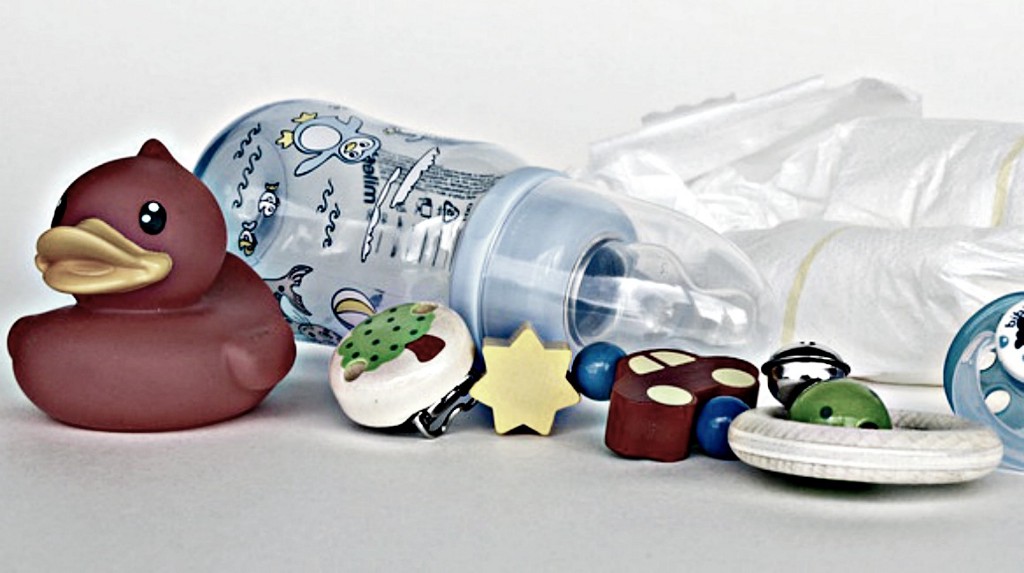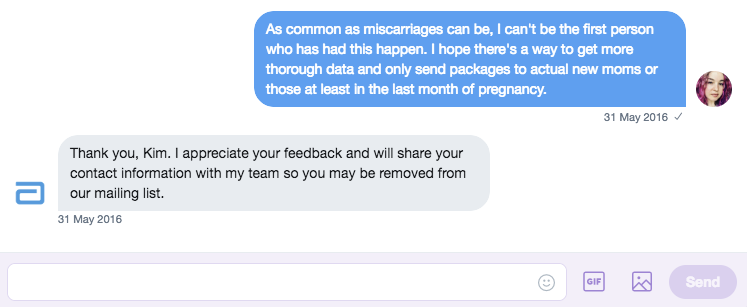
Should companies bear a responsibility to avoid causing harm?
![]()
Content warning: discussion of pregnancy loss
I vaguely remember the first time I was bombarded with Facebook and Google ads for a pair of boots I’d added to a shopping cart but never bought. I was creeped out, uneasy, a bit annoyed. My computer was spying on me, whispering about my habits and preferences to various interested parties behind my back.
Now, it happens so often that I don’t bat an eyelash. I find myself managing how Facebook advertises to me by purposely clicking on comments for ads on things that marginally interest me, not because I want more of those ads, but to minimize exposure to ads I don’t want to see. To make its algorithmic analysis of me smarter. I can’t stop seeing ads, so I try to avoid ones that will hurt or annoy me.
This kind of marketing will never go away. At this point, maybe most of us don’t notice, or don’t care. But there are some subjects, some products, that can be triggering, emotionally challenging, even devastating. There are some topics that should be treated with more care.
I find myself managing how Facebook advertises to me. Click To TweetI’ve written about pregnancy loss before. Twice. I mentioned in the first piece that in my positive-test excitement I downloaded multiple pregnancy apps only to find later that one or more had sold my information to Similac, which continued to send me unsolicited email long after the pregnancy itself was gone.
What I haven’t written about until now was how shortly after the second loss I got a physical package in the mail from Similac with formula samples and other crap. It seemed so random — until I realized Similac had obtained from the app not only my email address, but my projected due date from the first pregnancy. I was getting this formula right when I should have had a newborn in my arms. I was so hurt by this unexpected reminder, it sent me back into a morass of dark thoughts I had only just started to escape. I was angry; shouldn’t something like a due date have been considered “personally identifiable information” (PII) or protected medical data? How was that even legal?
Hi @AbbottGlobal after 2 miscarriages it’s v sad 2 get surprise #Similac via info u bought fr preggo app I installed
You can see in the Twitter thread that the company responded, asking me to DM them.
@EnameledKoi Our sincere apologies Kim. Please send us a direct message with your contact information. Thank you.
They agreed to remove me from their mailing list, but showed no inclination to take any action that might prevent future harm to others.

I won’t share them here, but the responses to my original tweet make it clear that I am not the only one to have been harmed by similar marketing. I found out that this is so common, in fact, that loss-support groups warn people about it.
@EnameledKoi Have unfortunately suffered the formula samples in the mail too. Luckily we attended a loss support group and were told it would be coming. When your hurtful actions are so common that decent people warn each other, you have a problem. Thanks for posting this.
— @mescad
I also never wrote about the third pregnancy loss a few months later. It was too much, and there were too many other terrible things happening at the same time.
But imagine this for a second: You are nine weeks along, but instead of a heartbeat, sonograms reveal only an empty gestational sac that doesn’t grow. You hope it was too early, a miscalculation, but that hope bleeds away a bit more with every passing day. You spend an indeterminate amount of time waiting to miscarry. You end up traveling with a “specimen kit” because there’s a family emergency — it could happen in the shared bathroom of someone’s AirBnB, but genetic testing on the “products of conception” might be the only way to figure out what’s been going wrong all of this time.
Meanwhile, you suddenly start seeing ads for baby products, nursing bras, pregnancy workouts, and whatever else you can imagine on Facebook. After the initial emotional kick in the gut, you’re angry, because you weren’t stupid enough this time to install any apps. You can’t figure out what happened, until you realize that every desperate Google search for “slow-rising beta hcg levels” or “possible blighted ovum” in your quest for miracle stories has only told the data gods that you are (sort of, not really) pregnant and now is a good time to market baby-related things at you.
You realize your devastation is immaterial in the bigger picture, that you’re an edge-case scenario, and that the gain for all companies involved is too great to care about the heartbreak they’re causing you, right this minute. As if you didn’t already feel so absolutely alone.
It shouldn’t be this way.
If advertising your product has the potential to cause harm, you have the responsibility to try and mitigate that harm.
How The Medical Community Is Pushing Invasive Procedures On People Who Miscarry
theestablishment.co
Asking product manufacturers, marketing departments, and social platforms to think humanely might be a tough sell. How will people buy their products (or ad space) if they aren’t made to feel they are not thin enough, not hot enough, not smart enough, just not enough? Companies are not in the business of making people feel good about themselves.
But hurting those who have experienced tremendous loss already is a breach of human decency so severe, I have a hard time imagining no corporate executive or employee cares. Surely at least some are upset that their products, upon showing up unexpectedly in inboxes, are re-breaking fractured hearts and shattering any tenuous illusion of normalcy.
There is a solution here, and it’s simple: Pregnancy and baby-related companies need to stop using projected due dates for marketing purposes. They must find better and smarter ways to market their products to consumers more likely to have carried to term, like baby registries or Facebook birth announcement posts. They mustn’t presume that everyone browsing a pregnancy forum is there for positive reasons. I can assure you, from three doomed pregnancies’ worth of reading desperate thread after desperate thread at 2 am in bed, unable to sleep — they are not.
At the same time, app developers need to be more sensitive with user data they share for marketing purposes. They must allow pregnancy-app users to remove themselves from all marketing when they experience a loss.
If your app profits from the hopeful journeys of pregnant women who’ve allowed you into their lives, you have a responsibility to care for them when that journey is cut tragically short. Please, avoid causing additional pain when there is already so much.
Please, do better.

